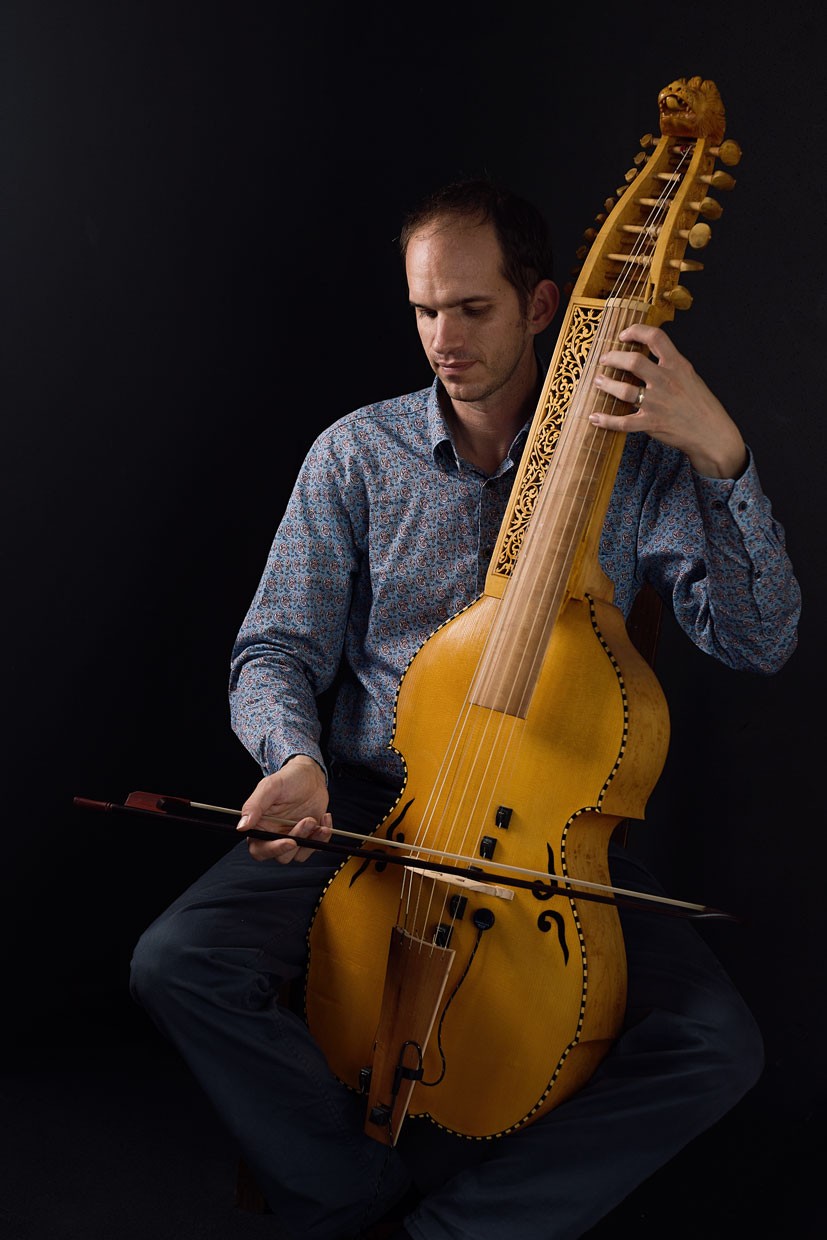We recently connected with Matt Baker and have shared our conversation below.
Matt, appreciate you joining us today. How did you learn to do what you do? Knowing what you know now, what could you have done to speed up your learning process? What skills do you think were most essential? What obstacles stood in the way of learning more?
I have been a professional double bassist since the age of 13 when in 1993 I won my first symphonic job with the Sioux City Symphony orchestra – the youngest member to have ever joined. So starting a totally new instrument from scratch wasn’t a task I had really thought about going back to for decades.
But since 2006, I had been slightly obsessed with this rare instrument – the baryton – and in late 2018 I found the only barytonist in Spain who had an instrument to try. I booked my ticket to Madrid and went off to try it (and thought that would be the end of that). However, I was hooked and knew this was the start of a new musical chapter of my life.
From 2019 I began, for the first time since I was 9, to learn a new instrument from scratch! And worse yet, only about 15 people in the world play the instrument professionally so apart from the gentleman in Madrid who would give me up to 5 lessons and then that was it, I had to do this on my own.
I read a treatise from the 17th century that briefly described the playing technique, I watched youtube videos of others playing the instrument to dechiper possible techniques, and possibly most helpfully, I listened for countless hours to recordings of the instrument. With my experience on string instruments, I could even hear the fingering and string choices they used and so could copy them and analyze the reasons for their choices, so giving my an insight to their methods and ideas.
However, the best method sometimes is just to throw yourself into the thick of it and I did just that. Using contacts from my double bass work, I organized concerts with what would become the Valencia Baryton Project and forced myself, just 6 months after picking up the instrument for the first time, into a professional concert. The pressure of doing this forged my work resolve on the instrument and it all came through to be a wonderful debut! I kept organizing concerts and then sought new directions, even while still coming to grips with the basics of playing the instrument. By mid 2019, I was experimenting with jazz on the baryton, something never done before, and in December of 2019 gave the first jazz baryton concert ever in the world. But I still had basic techniques to master and I was in danger of getting too far ahead of myself.
With the timeline mentioned here, I think we can all see what came next……. COVID! Which affected everyone, including me in so many ways. But, one positive, silver lining that came out of it for me and for other creatives I know is that it refocused my work and my efforts. Just before COVID hit I negotiated a recording contract with Naxos Records, one of the worlds largest classical music labels, for a CD of baryton trios. I was, in all likelihood, far over my head and biting off much more that I could chew. But COVID delayed that recording for 4 months and I used that time to buckle down and reasses all that I had learned and worked on. The recording worked spectacularly and is still receiving wonderful reviews to this day from publications ranging from The Strad to Die Welt.
I continue to to try to forge new paths and always learn something new with the baryton. On tour in 2022, I broke my wrist in 3 places and couldn’t play for a few months. But that was only my right wrist….. so I used my left hand to work on the technique of playing the 10 back strings and developed a way of playing multiple notes at a time, something not done up until then. I’ve now included that on my latest album and keep working to refine that idea and a number of others.
I think what I can take away from my story is that it is never too late to learn something and step back and start over again. And in doing so, many new doors will open and perspectives will become clear. My teaching work at Berklee Valencia (on double bass!) has been enriched to no end by my work in learning the baryton and I have a new understanding and compassion for the students who are in the middle of learning and perfecting their instruments. This story has also taught me that even without help, even without obvious support, starting something new on your own although daunting is possible and the feeling that you yourself have done this is irreplaceable.
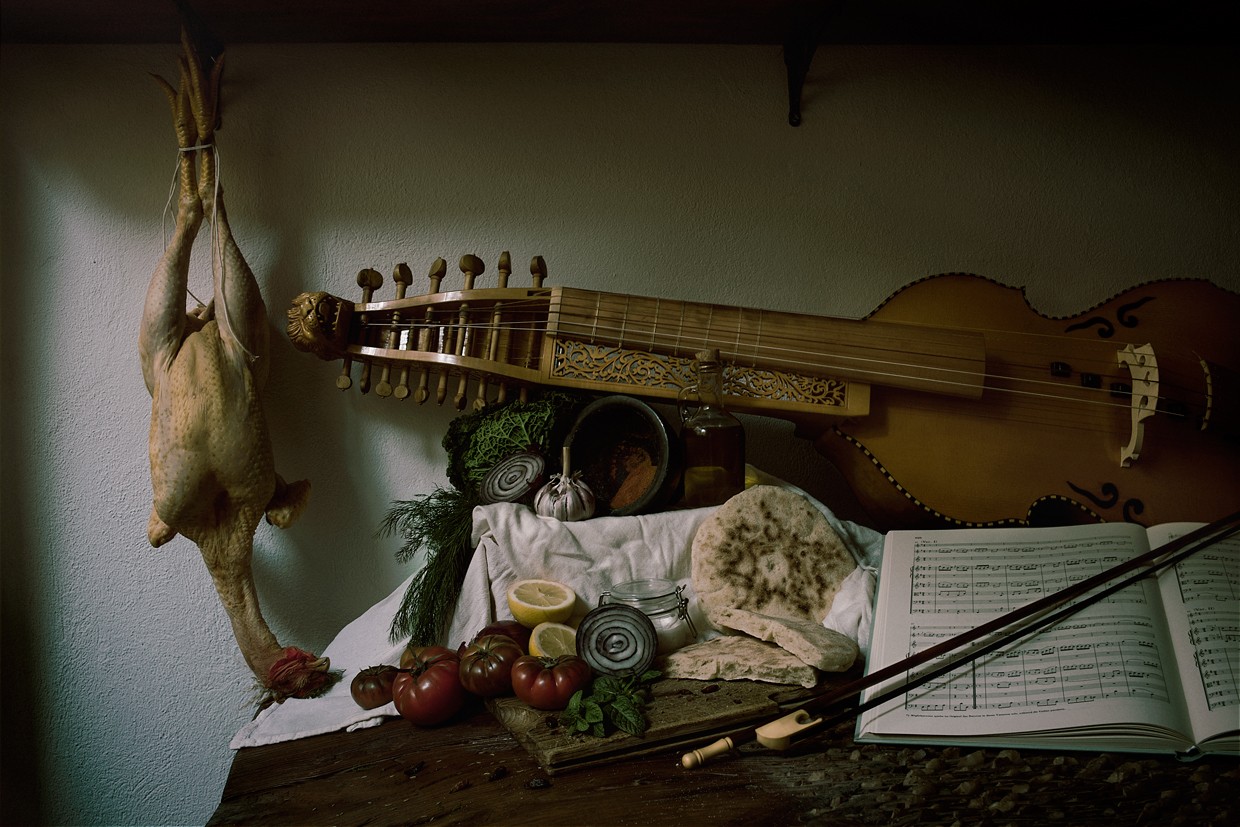
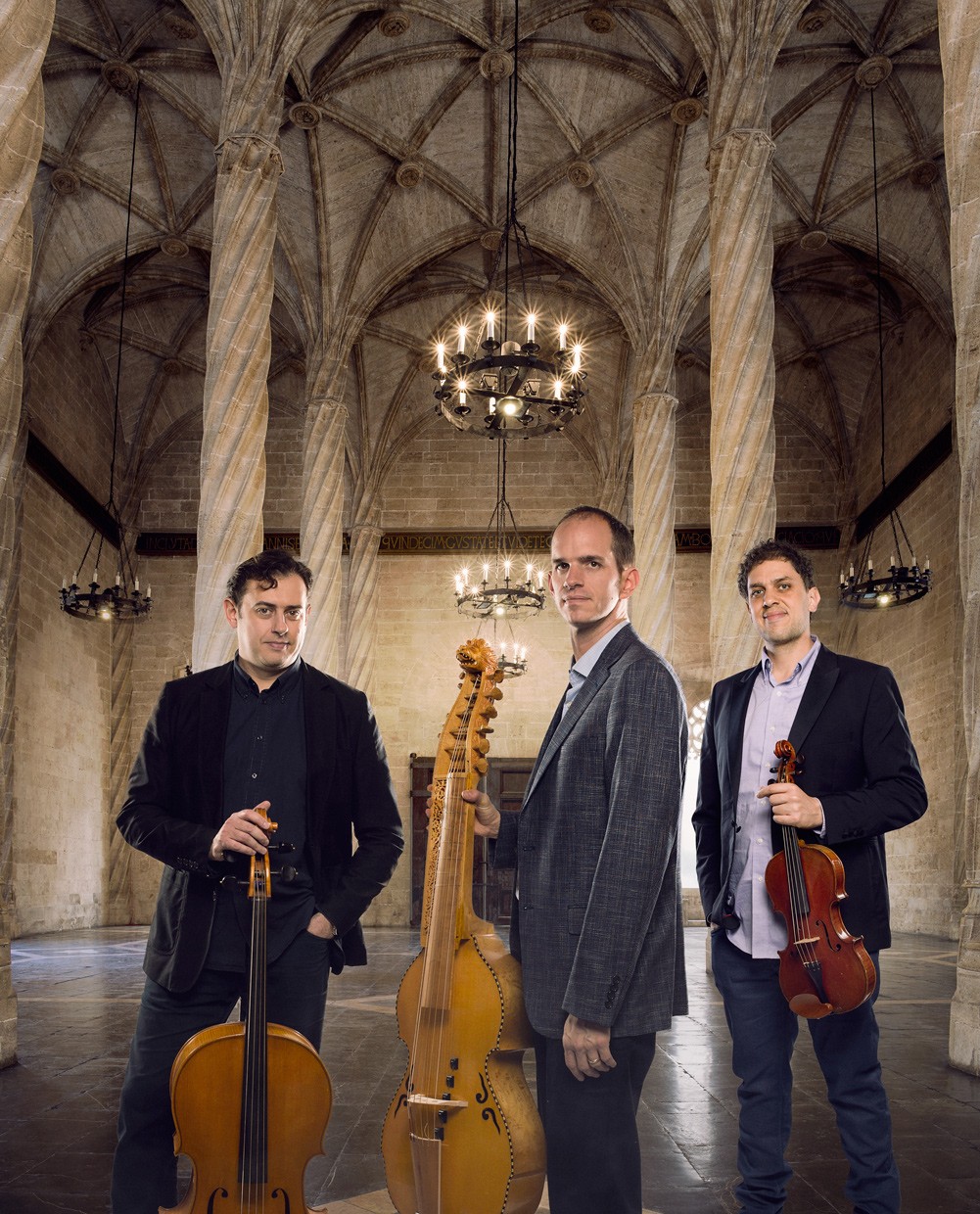
Matt, before we move on to more of these sorts of questions, can you take some time to bring our readers up to speed on you and what you do?
I am a musician that started off as a double bassist (upright bass). I wanted to play jazz but when I began, at the age of 9, I was told that I should also study classical music. That hooked me right there and since then I’ve grown to love all genres of music – something which fits perfectly with the mission of where I teach, Berklee Valencia.
Since then, I have developed a career in all areas of music – touring the world with folk music, theatre, chamber music, jazz, latin as well as holding a fixed job as a double bassist of the opera of Valencia. However, it is with a very rare instrument, the baryton, where I have really found my feet.
With 6 bowed strings on the front and 10 plucked strings on the back, the instrument was called in it’s day ‘the king of instruments’ and was reported to be one of the more difficult instruments ever invented. Today, it’s played professionally by just a handful of people and its music was dying out. I’ve made it a mission to resurrect the instrument and its music as well as take it into the modern era and beyond the genre of just classical music.
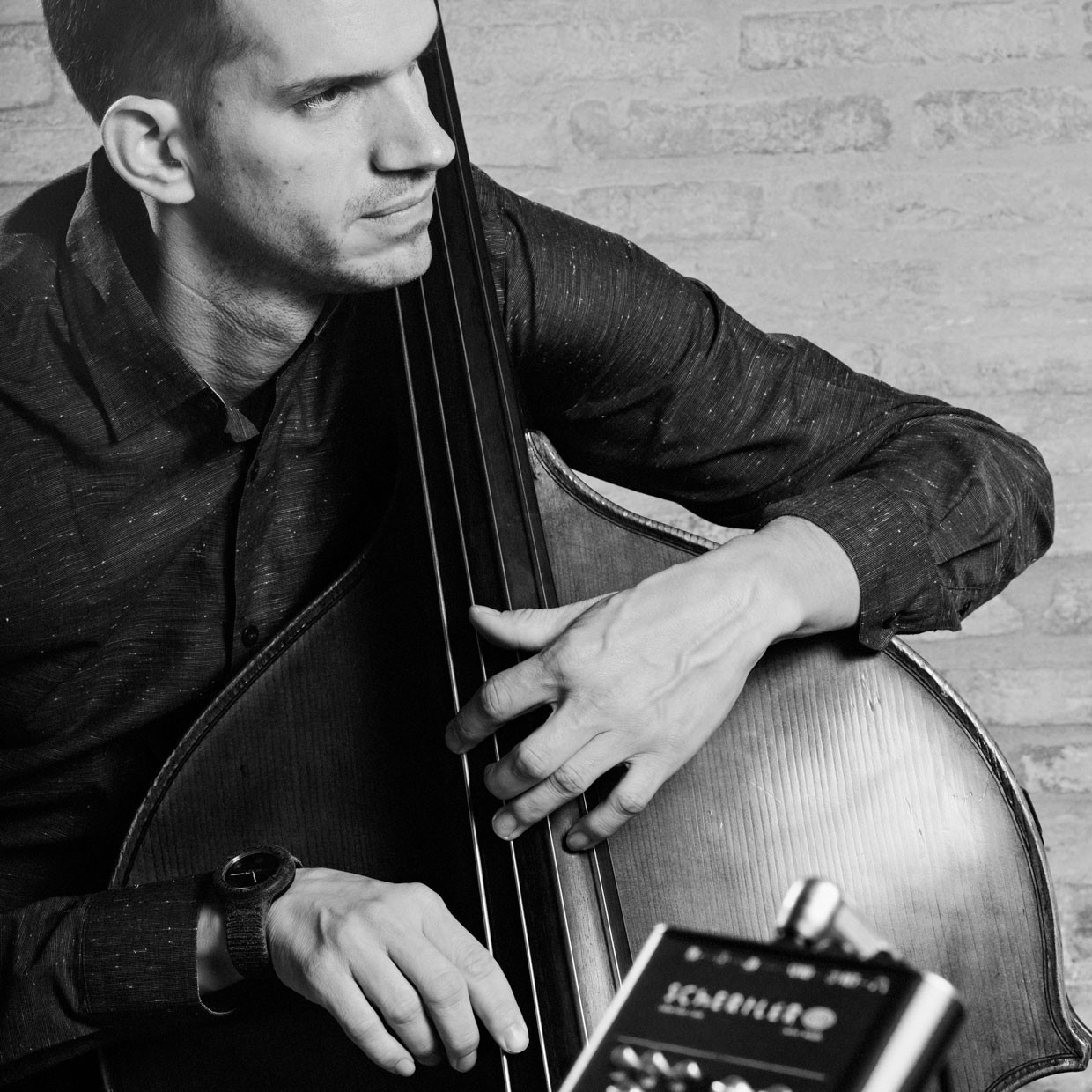

What’s the most rewarding aspect of being a creative in your experience?
I think that seeing the impact of music on a person and how it can affect and change their life is one of the greatest rewards a musician can have from doing their job. I see the all the time – someone who needed that particular piece right then to help them confront something going on in their life, to reaffirm who they are and what they are doing, or to provide a spark of creativity that spurs them on to greater things. I know that society deems other jobs to be more important – doctors saving lives, teachers educating a new generation – but I feel that without artists in the world we would very quickly lose our way as a society. Music, and art, has a healing and regenerative property that is often overlooked but whose effect, although subtle, is very profound in everyone’s lives whether they know it or not.
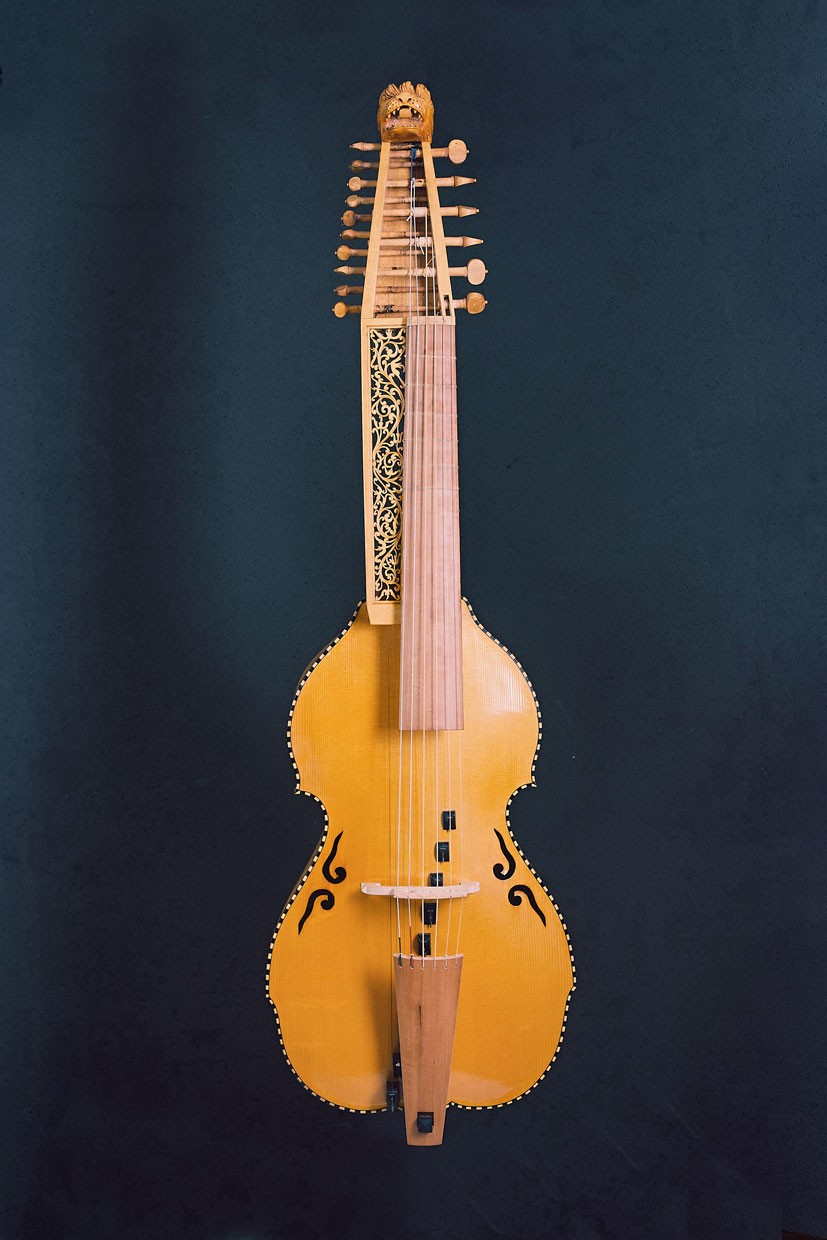
What can society do to ensure an environment that’s helpful to artists and creatives?
I believe that society needs to have a fundamental shift in their understanding of the value of art. It’s no fault of the general public, but the way that industry and society have developed (probably since the dawn of the mix-tape but definitely since the dawn of the mp3 and streaming) very little value is given to the presence of music these days. You see people with headphones on at all times streaming their favorite playlists from Spotify, but the actual investment in the music per listen/song is minimal. And whatever they average person does play is distributed in a manner that only benefits a few artists.
Decades past, it was a process of listening and considering whether you wanted to invest in an album and once you did, it was just that – not just an investment of money but also in time as you would listen to the album in its entirety.
I know we can’t go backwards, and we shouldn’t either as progress brings new opportunities. Artists can have their music available to audiences that they would never before have reached. However, it this also brings a saturation of the listener and a devaluation of the individual work of art. On the streaming playlists, you rarely even know whats on and we as a society have learned to treat music as a background soundtrack to our lives.
Live music hasn’t suffered as much in this regard and I actually find more people interested in it these days as it brings something that the streaming experience (especially the quality of sound of the streaming and the fact it’s off a phone more often than not) cannot provide. So I have hope for the future but would ask everyone to consider investigating the records they are streaming and investigating the works of that artist. And perhaps consider supporting their favorite artists in any way possible – purchasing CDs and merchandise, participating in their crowdfunding, gathering support for them to bring them on tour to your area.
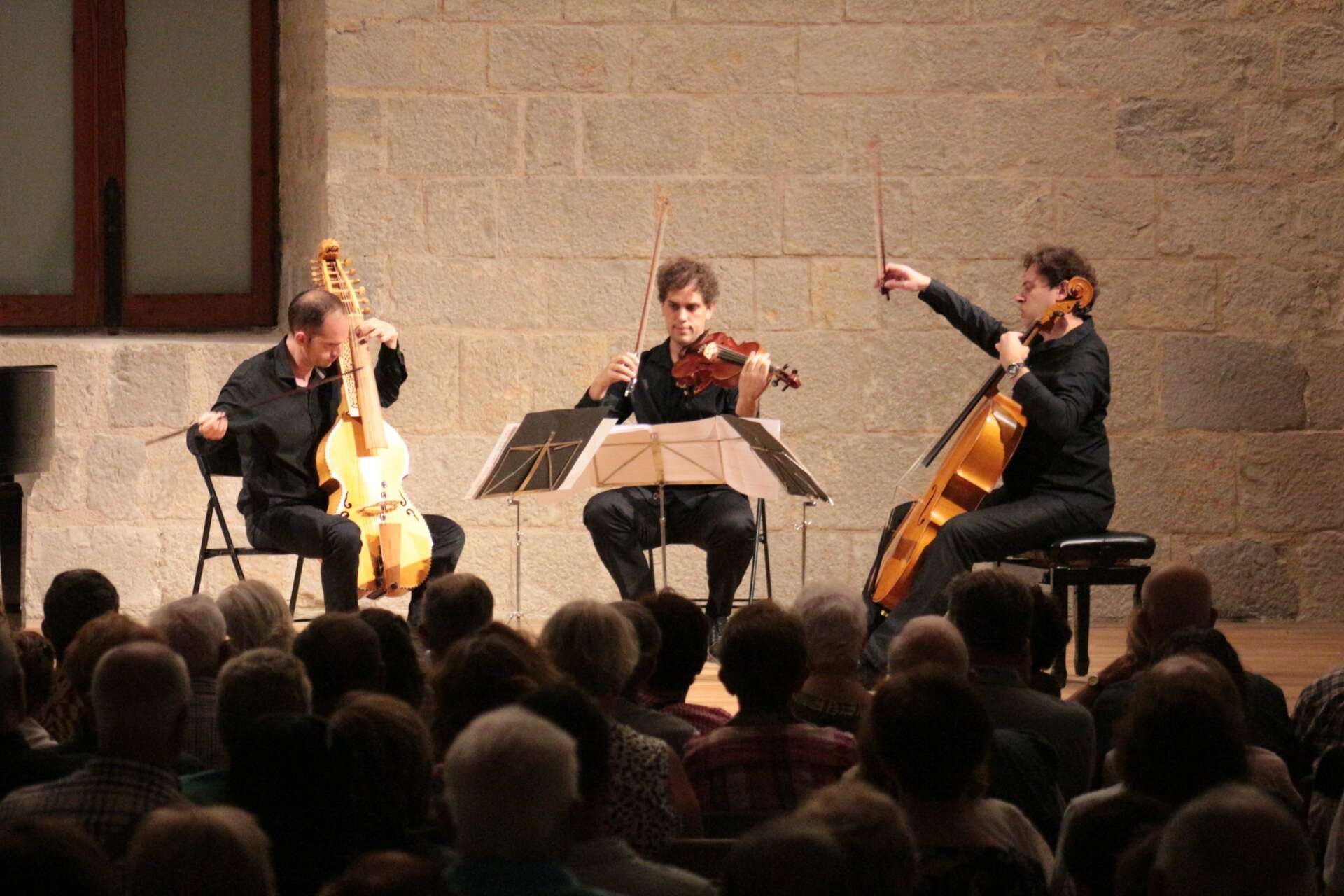
Contact Info:
- Website: www.valenciabaryton.com
- Instagram: mattbakerbaryton
- Facebook: https://www.facebook.com/profile.php?id=100005206084573
- Youtube: https://www.youtube.com/@mattbaker6952
- Other: www.bakerbass.com
Image Credits
Alex Baker


